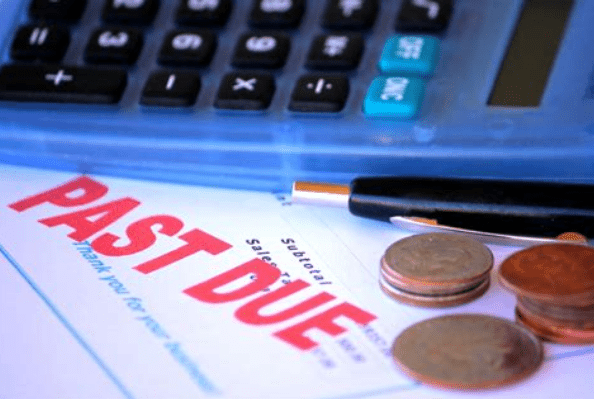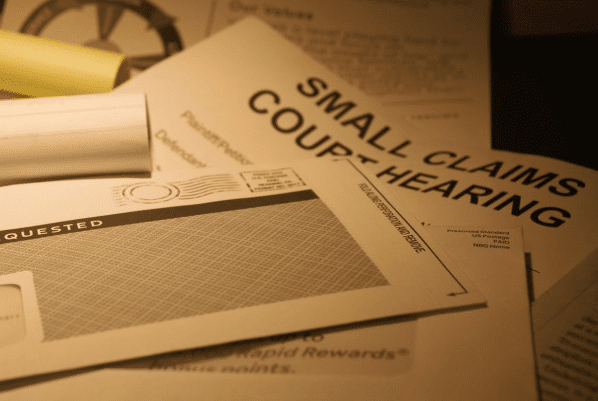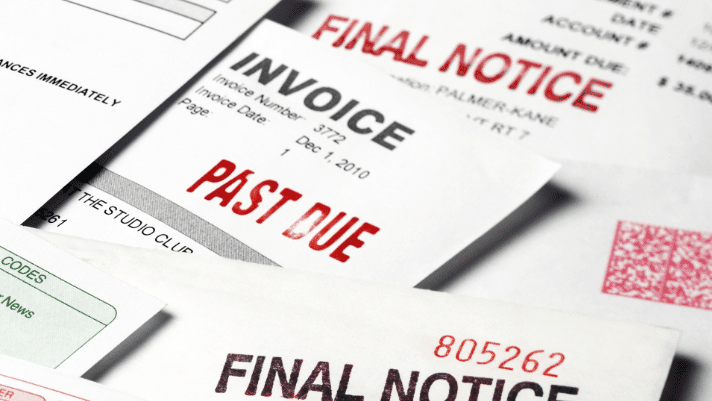If you’ve recently received a Summons and Complaint for a debt collection lawsuit in Louisiana, you might be feeling overwhelmed and uncertain about what to do next. It’s a stressful situation, but you’re not alone. Many people in Louisiana face similar challenges every day.
Fortunately, there’s a solution that can make the process of responding to a debt collection lawsuit much easier and less daunting: ZumaZip. With ZumaZip, you can generate your response quickly and efficiently, saving you time, stress, and hassle.
Using ZumaZip is simple. Our step-by-step web app guides you through the process of drafting and filing your response, ensuring that you cover all the necessary details and comply with Louisiana’s legal requirements. In just 15 minutes, you can complete your response and take an important step toward defending yourself against the debt collection lawsuit.
Don’t let a debt collection lawsuit overwhelm you. With ZumaZip by your side, you can respond confidently and effectively, giving yourself the best possible chance of a positive outcome.
Facing a debt collection lawsuit in Louisiana can indeed be overwhelming, but it’s important to know that you have rights and options available to you. By responding to the lawsuit with a formal Answer, you can protect yourself and potentially avoid paying the full amount claimed by the plaintiff.
The Fair Debt Collections Practices Act (FDCPA) provides important protections for consumers facing debt collection efforts, including requirements for how debt collectors can communicate with you and what actions they can take to collect a debt. By understanding your rights under the FDCPA and taking appropriate action, you can level the playing field and ensure that your rights are respected throughout the legal process.
Responding to a debt collection lawsuit with a formal Answer is a critical step in asserting your rights and defending yourself against the claims made by the plaintiff. With the help of ZumaZip, you can easily generate your Answer and ensure that it meets all the necessary legal requirements. Our step-by-step web app guides you through the process, making it simple and straightforward to create your response and protect your legal rights.
Don’t let a debt collection lawsuit intimidate you. With the right knowledge and resources, you can navigate the legal process effectively and emerge with a positive outcome. Let ZumaZip help you respond to your Louisiana debt collection lawsuit and take control of your financial future.
A Debt Collections Lawsuit Should be Viewed as a new Beginning
If you are served with a Summons and Complaint for an allegedly unpaid debt, do not lose hope. A good response can help you win the lawsuit and protect your financial well-being. The steps you take after being served with the Summons and Complaint are of the utmost importance. The worst thing you can do is nothing at all.
Below, we provide a helpful guide for Louisiana residents served with a Summons and Complaint for a supposedly unpaid debt, be it a credit card debt, a student loan, a medical bill or another line of credit. The information detailed below is specific to Louisiana debt collection laws:
- Deadlines
- Answer Forms
- How to Respond to a debt collection case in Louisiana
- Statute of Limitations in Louisiana
- Louisiana Legal Aid Organizations
- Louisiana Court Locations
- Key Takeaways
- Guide for Other States
Louisiana’s Deadline for Answering a Summons and Complaint
Louisiana residents served with a debt collection Summons and Complaint are required to file an official Answer with the court within 15 days from the service of these legal documents. Even if you simply respond with a one sentence written Answer such as “I deny ownership of the debt referenced in the Summons and Complaint” it will be filed with the court as an official Answer, preventing the worst possible scenario of a court-issued default judgment.
Failure to provide a formal Answer to the court and opposing counsel within 15 days will trigger the plaintiff’s attorney to file a Motion for Default judgment with the court. A Motion for Default Judgment is a document that says you should lose automatically because you didn’t even respond to the case: it’s like forfeiting a basketball game because you didn’t show up. In pretty much every case, the judge will grant the default judgment. It’s super important to respond to the Summons and Complaint within the 15 days allowed by Louisiana law.
The Answer Sets the Stage for Success
Crafting a well-written Answer to the Summons and Complaint sets the stage for success in your debt collection lawsuit. By responding effectively, you increase your chances of achieving favorable outcomes such as a Motion to Dismiss, a settlement agreement, or even a Motion for Summary Judgment.
A Motion to Dismiss “With Prejudice” is the most desirable outcome, as it prevents the plaintiff from bringing the same lawsuit against you in the future. On the other hand, a Motion to Dismiss “Without Prejudice” leaves the possibility open for the plaintiff to refile the lawsuit at a later date, potentially leading to further legal proceedings and risks for you.
To increase your chances of obtaining a favorable outcome, it’s crucial to carefully craft your Answer, addressing each claim in the Complaint and asserting any applicable affirmative defenses. By doing so, you demonstrate to the court that you are actively defending yourself and presenting valid legal arguments in your defense.
With ZumaZip, you can streamline the process of drafting and filing your Answer, ensuring that it meets all necessary legal requirements and sets the stage for success in your debt collection lawsuit. Our step-by-step web app guides you through the process, making it easier than ever to respond effectively and protect your rights.
Louisiana’s Answer Forms in Response to the Summons
Louisiana does not have an official Answer form for debtors to respond to the Summons through a common template. This is why we created ZumaZip. With ZumaZip, you can create your complete Answer in 15 minutes; we will even have it reviewed by an attorney and filed for you.
You can also make and mail your own Answer. Just be sure to send a copy of your Answer to the court and opposing attorney through the United States Postal Service’s Certified Mail Return Receipt Requested mail option. This way, you will have tangible proof that your Answer was received by opposing counsel as well as the court.
Be sure to make a copy of the postal receipts that prove delivery occurred. After all, it is possible the receipts will fade over time. There is also a chance you will spill something on them or misplace them. Make copies and you will have proof in your records that show your Answer was delivered.
How to Respond to a Debt Collection Lawsuit in Louisiana
The first step the creditor takes in a debt collection lawsuit is to serve you, the alleged debtor, with two legal documents detailing the supposed unpaid debt. These documents are referred to as the Summons and Complaint. Louisiana debt collection laws require you to respond to Summons and Complaint by filing a formal Answer with the court in 15 days. If you fail to respond in this time frame, you will likely lose your case as the missed deadline triggers a default judgment in favor of the plaintiff (the creditor).
If you miss the deadline, it is possible the judge will reconsider your case if you file a Motion to Set Aside Judgment, but don’t count on it. Don’t wallow in self-misery after you are served with a debt collection Summons and Complaint. Instead, acknowledge this reality by getting right to work on creating your formal Answer. Send the Answer well ahead of the 15-day expiration date to be on the safe side.
Though you can simply respond to the Summons and Complaint with a brief Answer that denies the debt is yours or denies the debt is accurate, it is in your interest to respond to the litigation with an Answer that addresses every single allegation raised in the complaint. This is also your opportunity to assert affirmative defenses applicable to your case. Once your Answer is ready, it is necessary to file your Answer with the court and also with the plaintiff through Certified Mail Return Receipt Requested so you have proof of service. Here is a closer look at each of the steps that constitute the response to debt collection litigation in the form of an official Answer.
Step 1: Create the Answer
The most important step toward winning your debt collection lawsuit is filing a detailed Answer with the court. If this document provides sufficient detail and addresses each of the accusations made in the Summons and Complaint, there is a chance opposing counsel will not put up much of a fight or any fight at all when you eventually file a Motion to Dismiss with the court. It is also possible your informative response will convince opposing counsel to pursue settlement negotiations in which you settle the debt for significantly less than the amount listed in the Summons and Complaint.
Though the court will certainly accept a handwritten Answer, sending an audio tape or digital file containing your Answer will not prove acceptable. When in doubt, err on the side of being overly formal. Type your Answer in a word processing document, print it out and sign it. This polished approach is better than writing out your Answer with pen and paper. The judge presiding over your case will be more sympathetic to your cause if you invest the time and effort to type your Answer rather than write it out by hand on loose-leaf paper.
Your Answer should have the following “styling” information at the top of the document:
- Your full name and address
- The name of the plaintiff (opposing attorney) and their client (the creditor)
- The court’s name and information including whether it is a state or city court
- The court’s address
Do not forget to include the specific case information including:
- Index number,
- Case number
- Amount of money allegedly owed as listed in the Summons and Complaint
Once this information is added to the top of the Answer, it is time to provide your formal written rebuttal to the accusations made in the Summons & Complaint.
Step 2: Answer Each Complaint Accusation
Do not be intimidated by the process of formally answering the Complaint.Take some time to read over all of the details presented in the Complaint’s numbered paragraphs. If the accusations made in these paragraphs are incorrect, respond with “Deny.” If the accusation is completely truthful, respond with “Admit.”
However, there is a good chance you will not know if all of the allegations in the Complaint are fully accurate. If this is the case, respond to those paragraphs with “Defendant denies the allegation for lack of knowledge sufficient to know the truth or falsity thereof. These responses should correspond to their numbered paragraphs for clarity’s sake. When in doubt, err on the side of denial. As attorneys often say, “Deny everything.” Do not lose sight of the fact that you can always amend your Answer or alter your strategy at a court hearing after the initial Answer is filed.
Some debtors’ attorneys advise responding with an Answer that is a general denial. This approach denies everything set forth within the Complaint, essentially putting the ball in the opposing attorney’s court, forcing them to prove the allegations contained in the Complaint.
Step 3: Assert Your Affirmative Defenses
Affirmative defenses are fancy legal terms that boil down to the many possible reasons why the plaintiff (creditor) suing you does not have a solid argument. Every potentially applicable affirmative defense should be listed in the Answer, even if you are not completely certain they pertain to your unique Complaint. Some common affirmative defenses include but are not limited to the following:
- The debt has already been paid
- The debt has been excused
- Part of the debt has been paid
- The defendant is a co-signer yet was not informed of his or her rights as a co-signer
- The account named in the Summons and Complaint is not the defendant’s account
The statute of limitations on debt collection in Louisiana can also be used as an affirmative defense if it expired prior to the service of the Summons and Complaint. As an example, the statute of limitations on debt collection in Louisiana for unpaid credit cards is three years. Once this period of time passes, the debt can no longer be pursued in court due to its age.
Step 3: Filing the Answer
It is not enough to simply pop your Answer in an envelope, slap a stamp on the outside and drop it off in a mailbox for delivery to the court. It is important to make several copies of this important legal document before sending it. Retain a copy for your records. Send another copy to the plaintiff’s attorney. Be sure to include the court’s address as well as opposing counsel’s address and the creditor’s address at the bottom of the answer. Send the Answer Certified Mail Return Receipt Requested so you are provided with proof it was actually delivered.
Need help finding your court’s mailing address? ZumaZip can help with that.
Statute of Limitations on Debt Collection in Louisiana
The statute of limitations on debt collection in Louisiana places a deadline on debt collection efforts. If the deadline is past, then the collector can’t sue you for the debt. Here are the deadlines on debt collection in Louisiana.
| Louisiana Statute of Limitations on Debt | |
| Debt Type | Deadline in Years |
| Oral | 10 |
| Written | 10 |
| Promissory | 10 |
| Open | 3 |
| Credit Card | 3 |
| Judgements | 10 |
Let’s consider the example of Jose. Jose has a credit card debt with Capital One. The last time he made a payment on the debt was 4 years ago. If Capital One sues him for a debt, then they are violating the statute of limitations. But that doesn’t matter unless Jose brings it up in his Answer as an affirmative defense. Jose needs to tell the court in his Answer that the statute of limitations has passed so Capital One can no longer collect. #SorryNotSorry
Louisiana Legal Aid Organizations
Each of the 50 states has a minimum of one government-assisted organization that provides no-cost legal services to residents. Louisiana has two such organizations:
Southeast Louisiana Legal Services Corporation
1340 Poydras St. Ste. 600
New Orleans, LA 70112
(800) 349-0886
Acadiana Legal Service Corporation
1020 Surrey Street
P.O. Box 4823
Lafayette, LA 70502
(800) 256-1175
Key Takeaways
In Louisiana, it’s crucial to act swiftly upon receiving a Summons and Complaint for a debt collection lawsuit. Here’s a quick rundown of the steps you need to take:
- Deadline to file an Answer: You have 15 days to respond.
- Steps to fight the litigation:
- Create the Answer document.
- Address each allegation in the Complaint individually within your Answer.
- Assert affirmative defenses where applicable to counter the allegations.
- Serve the Answer to opposing counsel and file it with the court using Certified Mail Return Receipt Requested.
By following these steps promptly and accurately, you can effectively defend yourself in the debt collection lawsuit and protect your legal rights in Louisiana.
What is ZumaZip?
ZumaZip is a convenient solution designed to streamline your response to a debt collection lawsuit. Here’s a breakdown of what you can expect when you use ZumaZip:
Firstly, you’ll access our user-friendly web application, which guides you through the process step by step. You’ll be prompted to answer a series of questions related to your specific situation. Once you’ve completed the questionnaire, you have the option to either print out the finalized forms and mail them to the appropriate courts yourself, or you can opt to utilize ZumaZip’s services to file them on your behalf. Additionally, if you choose this option, an attorney will review your document for added peace of mind.
If you’re seeking guidance on how to effectively respond to a debt collection lawsuit, ZumaZip can provide the assistance you need. Feel free to explore our FAQs for more information on what ZumaZip has to offer.
What if I haven’t been sued yet?
If you’ve only received a collections notice, but not a lawsuit, the best way to respond is with a Debt Validation Letter. When a debt collector contacts you in any way, whether it’s by phone or mail, you can respond by formally requesting a debt validation with a Debt Validation Letter . This letter notifies the collector that you dispute the debt and forces them to provide proof you owe the debt. They can’t call you or continue collecting until they provide validation of the debt. This flowchart shows how you can use a Debt Validation Letter to win.
Get started with a Debt Validation Letter here.
How to Answer a Summons for debt collection in all 50 states
Here’s a list of guides on how to respond to a debt collection lawsuit in each state:
- Alabama
- Alaska
- Arizona
- Arkansas
- California
- Colorado
- Connecticut
- Delaware
- Florida
- Georgia
- Hawaii
- Idaho
- Illinois
- Indiana
- Iowa
- Kansas
- Kentucky
- Louisiana
- Maine
- Maryland
- Massachusetts
- Michigan
- Minnesota
- Mississippi
- Missouri
- Montana
- Nebraska
- Nevada
- New Hampshire
- New Jersey
- New Mexico
- New York
- North Carolina
- North Dakota
- Ohio
- Oklahoma
- Oregon
- Pennsylvania
- Rhode Island
- South Carolina
- South Dakota
- Tennessee
- Texas
- Utah
- Vermont; Vermont (Small Claims court)
- Virginia
- Washington
- West Virginia
- Wisconsin
- Wyoming
Guides on how to beat every debt collector
Hey there! Facing off against a debt collector can feel like a daunting challenge, but fear not! We’re here to help you navigate through it all with our handy guides designed to assist you in beating every debt collector you encounter. Whether you’re facing a new lawsuit or dealing with a persistent collector, we’ve got your back. Stay positive, stay informed, and let’s tackle this together!
- Absolute Resolutions Investments LLC
- Accredited Collection Services
- Alliance One
- Amcol Clmbia
- American Recovery Service
- Asset Acceptance LLC
- Asset Recovery Solutions
- Associated Credit Services
- Autovest LLC
- Cach LLC
- Cavalry SPV I LLC
- Cerastes LLC
- Colinfobur
- Covington Credit
- Crown Asset Management
- CTC Debt Collector
- Cypress Financial Recoveries
- Delanor Kemper & Associates
- Eagle Loan of Ohio
- Educap
- Estate Information Services
- FIA Card Services
- Forster & Garbus
- Freshview Solutions
- Fulton Friedman & Gullace LLP
- Harvest Credit Management
- Howard Lee Schiff
- Hudson & Keyse LLC
- Integras Capital Recovery LLC
- Javitch Block
- Jefferson Capital Systems LLC
- LVNV Funding
- Mannbracken
- Mariner Finance
- Medicredit
- Michael J Adams PC
- Michael J Scott
- Midland Funding LLC
- Mullooly, Jeffrey, Rooney & Flynn
- Mountain Land Collections
- MRS Associates
- National Collegiate Trust
- Nationstar Foreclosure
- Northstar Capital Acquisition
- NCEP LLC
- NRC Collection Agency
- OneMain Financial
- Palisades Collection LLC
- Pallida LLC
- Paragon Revenue Group
- Pinnacle Collections Agency
- PMAB LLC
- Portfolio Recovery Associates
- Provest Law
- PYOD LLC
- Reunion Student Loan Finance Corporation
- Revenue Group
- Regents and Associates
- RSIEH
- Salander Enterprises LLC
- Second Round Sub LLC
- Security Credit Services
- Sherman Financial Group
- Suttell and Hammer
- T-Mobile
- Transworld Systems
- Tulsa Teachers Credit Union
- UCB Collection
- Velo Law Office
- Velocity Investments
- Waypoint Resource Group
- Weinberg and Associates
- Wolpoff & Abramson
Settle your medical debt
Having a health challenge is stressful, but dealing medical debt on top of it is overwhelming. Here are some resources on how to manage medical debt.
- Am I Responsible for My Spouse’s Medical Debt?
- Do I Need a Lawyer for Medical Bills?
- Do I Need a Lawyer to Fight Medical Bill Debt?
- Does Bankruptcy Clear Medical Debt?
- How Much Do Collection Agencies Pay for Medical Debt?
- How to Find Medical Debt Forgiveness Programs
- Is There a Statute of Limitations on Medical Bills?
- Medical Debt Statute of Limitations by State
- Summoned to Court for Medical Bills — What Do I Do?
- Summoned to Court for Medical Bills? What to Do Next
Stop calls from Debt Collectors
Do you keep getting calls from an unknown number, only to realize that it’s a debt collector on the other line? If you’ve been called by any of the following numbers, chances are you have collectors coming after you, and we’ll tell you how to stop them.



































